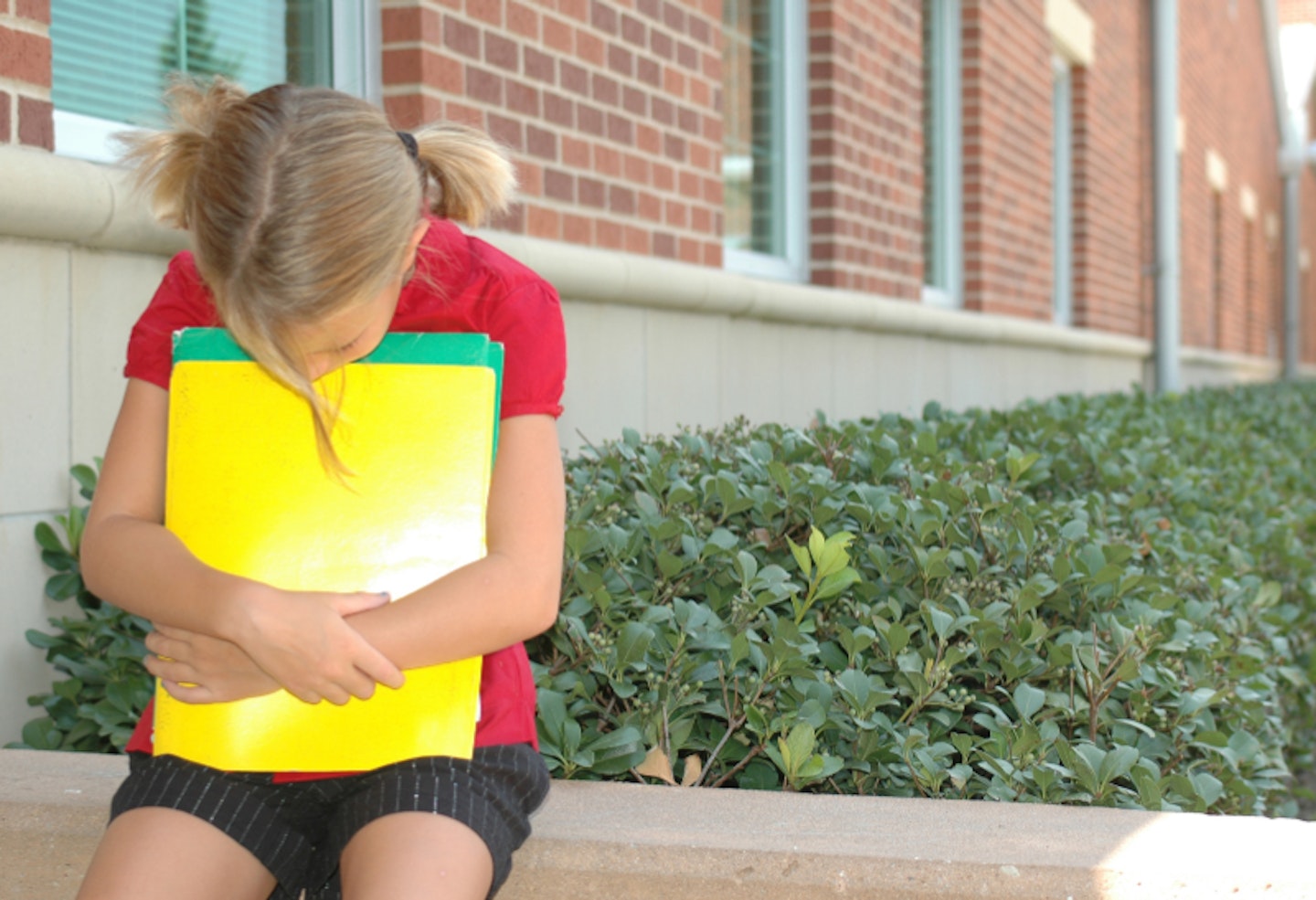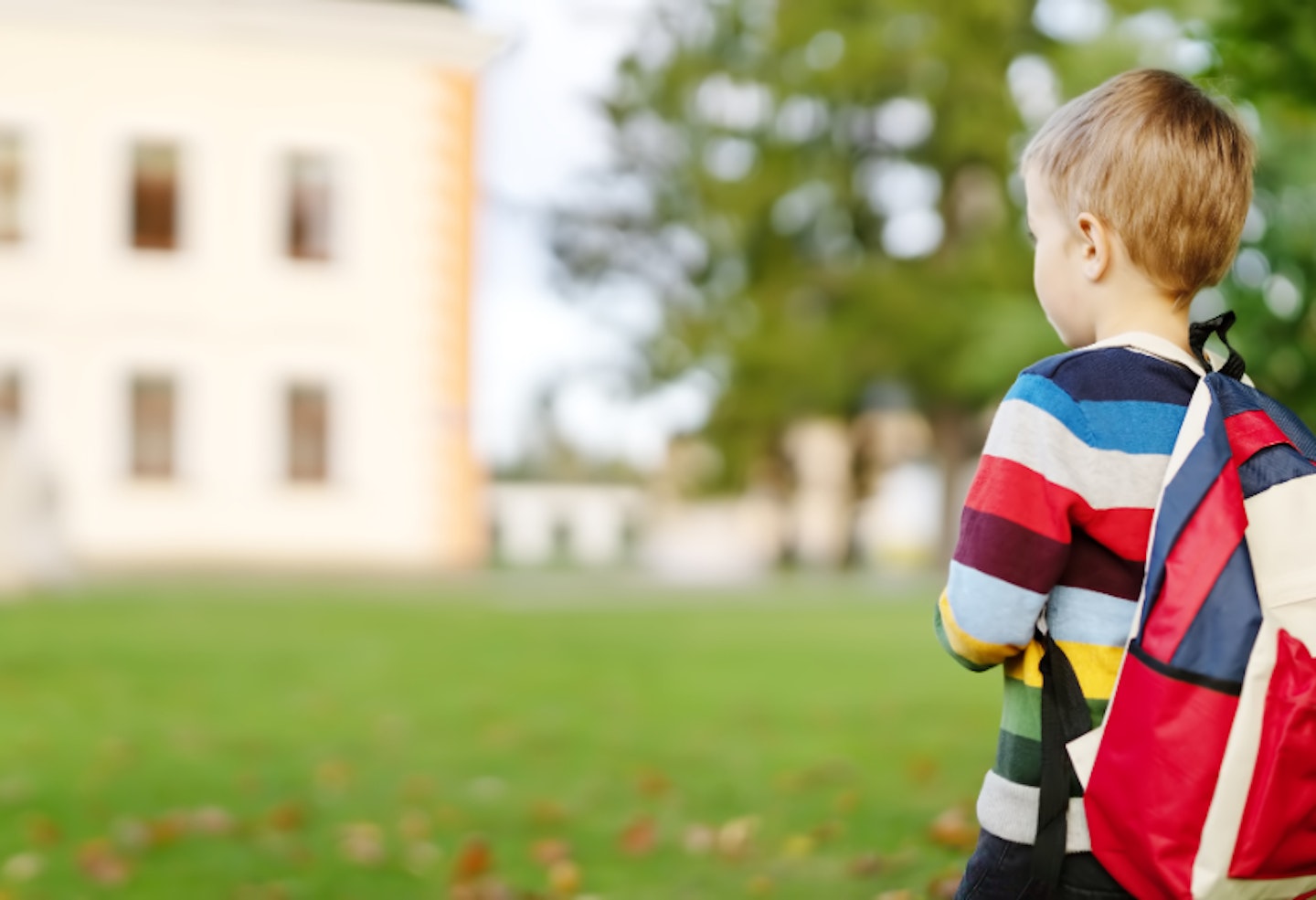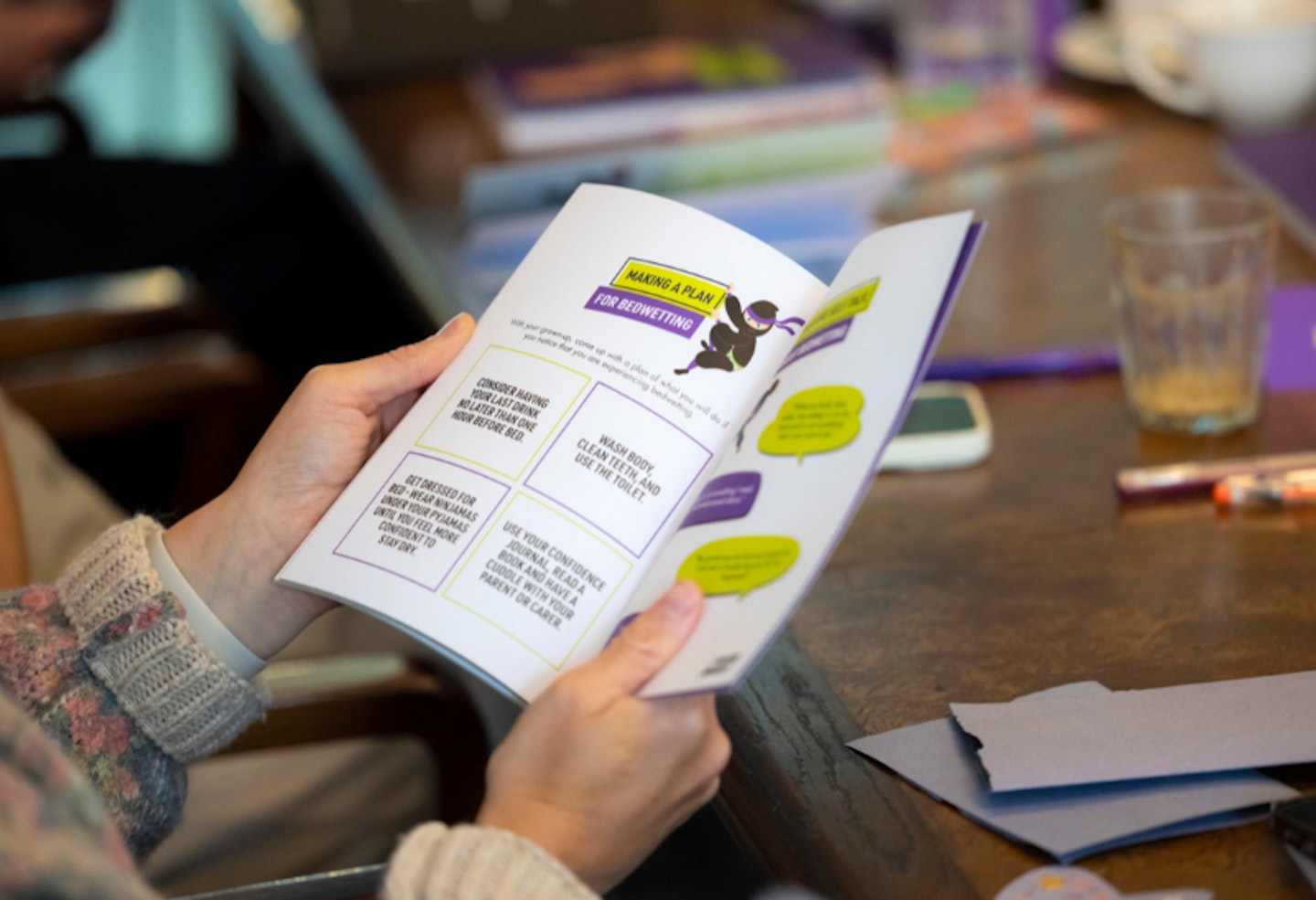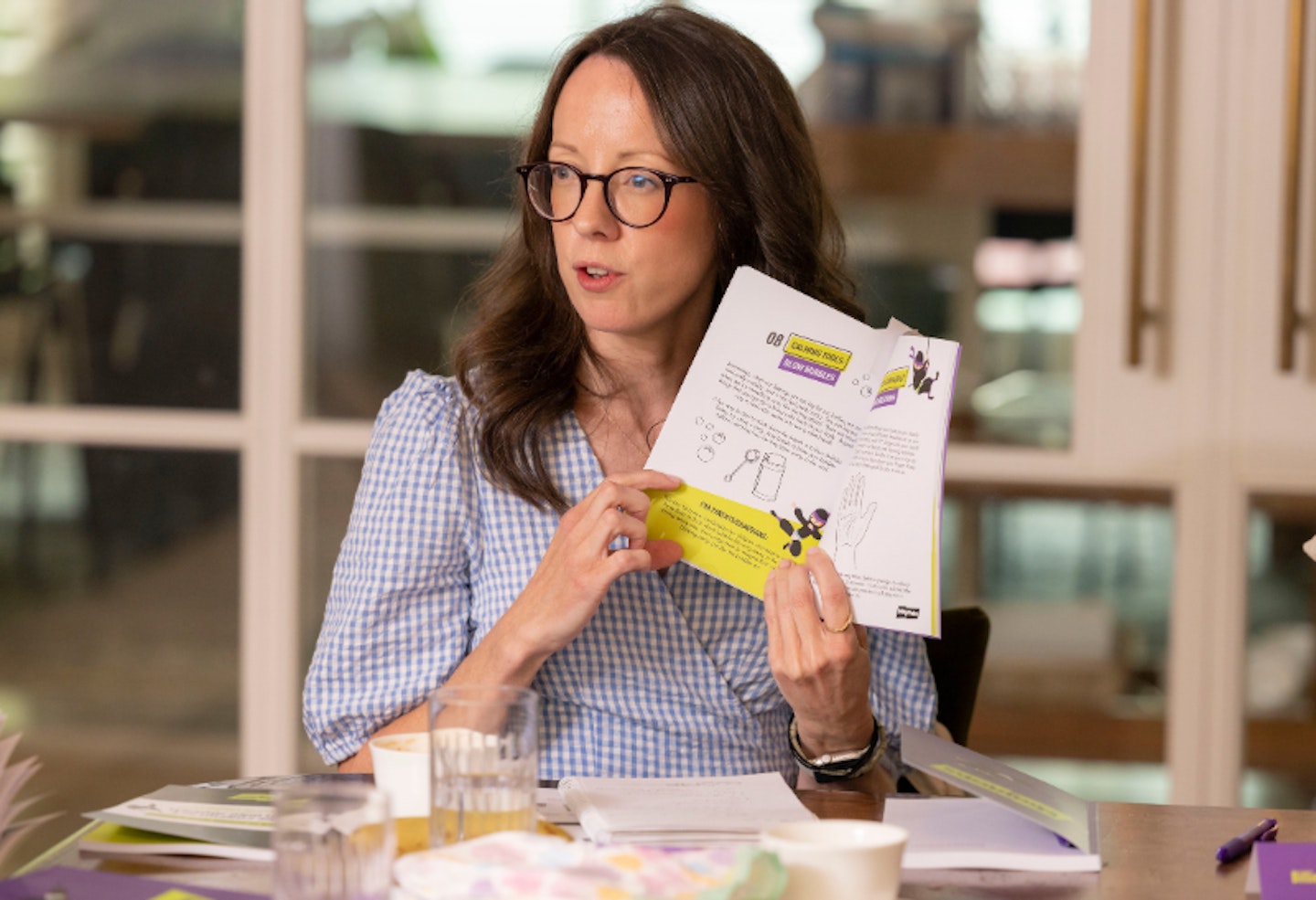It might still be the summer holidays, but already worries may be settling in about the start of a new school year. Whether your child is getting ready for their first day at school, or returning to a new year, or perhaps even moving schools, the change in routine can be unnerving for all children. We caught up with Dr. Ranj, Paediatrician, TV presenter and author, to talk about how we can help children ease their worries, and signs to look out for that they are feeling nervous about going back to school, including bedwetting.
How common is back to school anxiety?
Dr Ranj says, "I think it is safe to say that all children, at some stage, will have experienced some sort of anxiety when going to school. It's pretty much a ubiquitous experience for a lot of kids. It is a big milestone in a child's growth and development. It's a big event for them. When they start school for the first time it can be quite daunting."

Can back to school anxiety cause an increase in bedwetting?
New research conducted by Pampers Ninjamas has found that parents of children who experience bedwetting confirm a change in routine (62%), nerves (56%) or excitement (35%) associated with starting or returning to school after the summer holidays can make bedwetting more likely.
"We know that any kind of life change can have lots of positive effects," reassures Dr. Ranj, however, he adds, "unfortunately, it can have less than desirable outcomes. Bedwetting is one of them." Dr Ranj explains, "we know that bedwetting is a very frequent and normal part of growing up, but we do know that going back to school and the anxiety associated with it can increase the likelihood of it happening."
In the study of 1000 parents and carers of children aged 4-7 years, 49% confirmed that they experienced more bedwetting at the start of the school year than any other time.
Is bedwetting more common in boys or girls
Dr Ranj says that "bedwetting, in general, is more common in boys, for reasons unknown. But it is something most children experience at some stage."
Should parents be concerned about bedwetting?
ERIC, The Children's Bowl and Bladder charity, estimates that 15% of 7 year olds regularly wet the bed, a significant number. Dr. Ranj explains that "bedwetting is much more common in the under 5s because they are still learning how to control their bladder. Often for under 5s it's usually all part of development." However, he adds that "over the age of 5 we are interested as healthcare professionals and certainly the recommendations from NICE are that if you have a child over the age of 5 who is regularly bedwetting or has restarted bedwetting having been dry, you should seek a healthcare opinion to make sure there is no underlying medical reason for it. Often there isn't and there are lots of things you can do to deal with the consequences of bedwetting, such as using nappies like Ninjamas, to help them through the bedwetting period."
How can bedwetting impact children returning to or starting school?
If anxiety about returning school, or starting school, triggers bedwetting, it can cause confidence problems, especially for older children. Dr. Ranj says, "one third of parents said if their child wet the bed the night before they were more reluctant to go to school the next day." He also adds that three quarters of parents say bedwetting impacts their child's confidence. He notes that "the older the child is the more embarrassed they can become about it and it can have an impact on their confidence, school performance and willingness to go to school."
Things to look out for which might indicate back to school anxiety
The new research from Pampers showed that when it comes to starting or returning to school 64 per cent of children are most worried about being separated from their parents and carers, or separation anxiety, 55 per cent were worried about following instructions from the teacher and 60 per cent were nervous about spending time with children they are not familiar with.
Bedwetting is an obvious indicator if your child is feeling anxious, but you might notice more subtle (or not so subtle) changes. Dr. Ranj advises that "you might notice a change in behaviour, they may play up more, suffer sleep disturbance, and eating patterns can change." He says that "any type of stress can affect sleeping, eating, and behaviour."

Tips to help prepare children for school
Dr Ranj says, "first and foremost the starting point has to be talking. Open conversations. It won't be just one conversation, it will be a number of conversations that you will revisit time and time again." He advises that parents should "create a space where your child can voice any concerns they might have without fear of judgement. Without fear of being told off. Let them be open about what their worries might be and you can probably nip it in the bud most of the time."
However if they are not worried about anything in particular, and it may not be school related, Dr Ranj says, still "create that safe space, open up that conversation, check in with them, ask how are you? How are you feeling? Is there anything that's worrying you? That's a great starting point."
Another tip, is to try and find the best time to talk with your child. Dr. Ranj suggests "when they start school, if you are involved in taking your child to and from school, that is a great time to have that conversation. The car journey home to have a chat." Other great ways to start conversations can come from children's books and TV. For example, Dr. Ranj says, "if there is any storyline you see online, or on screen these can be great trigger points for opening up conversations."
Most importantly, Dr. Ranj advises, "it's about making your child feel safe and making them feel they can talk to you and without fear of being told off, that is the biggest hindrance. Parents do not have to be therapists but there is so much positive stuff you can do just through conversation." When it comes to bedwetting, whether triggered by back to school anxiety or not, Dr Ranj says, "let them know if accidents happen they are perfectly normal, they are nothing to be ashamed about, nothing to be embarrassed about and it's something you can address together, it's something most children will get over. Instil in them that confidence that things will get better and it won't always be like that."
How to start conversations?
Talking to children and creating a safe space to talk is important but how to start those conversations, especially with older children, who might tend towards privacy. Dr. Ranj suggests you "ask questions, use the word sad, instead of worry, and ask 'what made you sad?'" He also advises to "start with positives. Ask, what did you enjoy? What made you happy? Then ask did anything make you sad? Frame it simply depending on the age of the child." Of course it is important for parents not to be judgemental and with bedwetting always remind your child that it is normal, it will get better, and work out together what you can do. Dr Ranj adds that you can also "try rewards on days your child is dry, and get them involved, they might want to help change wet bed sheets and reward them for that too." The NHS also suggests, "agree with your child on rewards for positive actions, such as a sticker for every time they use the toilet before bed."
If an older child is wetting the bed should you use nappies?
Bedwetting is uncomfortable and embarrassing and while your child is going through it, to ease the impact on them and help them go about their day and week at school without worry, you can introduce nighttime nappies, such as pull up pants designed for older children. Dr. Ranj suggests using Pampers Ninjamas. He says, "they don't feel like pull up pants. They are discreet." He also advises, "don't call it a nappy, call them special pants, or something like that. Ninjamas go up to 12 years and they are specifically designed to not feel or look like a nappy. A child doesn't need to feel different or awkward for wearing them." However, he reminds parents that "they are not a solution to the bedwetting, that is important to remember, but they are there as a tool to help you manage the consequences of it and stop children feeling embarrassed about it." They prevent discomfort, it's not nice for anyone waking up in a cold, wet bed. Dr Ranj says, "the reassurance of having them is sometimes helpful, to give a bit more confidence, especially if they are away from home."

Back to School with a Boost: The Confidence Building Journal.
As we near the end of the summer holidays, if you start to notice your little one getting nervous, or they express their concerns to you, perhaps they start wetting the bed, then journalling is a great tool. Pampers Ninjamas have launched a campaign, Back to School with a Boost, which offers parents the opportunity to download or order a free confidence building journal. Suitable for 4-7 year olds and designed by Dr. Kimberley Bennett, a child Psychologist, she says, "bedwetting can still be seen as a taboo topic, and although it shouldn’t be, this can make it a sensitive topic to discuss within families. Parents and carers can play a crucial role in helping their children to work through their emotions, and encouraging open communication with your child about their feelings can help them feel supported and understood. This journal can really help as it is a useful tool to help facilitate some of these conversations.”
Dr Ranj agrees and says the journal is "full of activities to suit different kids and different ages." He adds "they might just want to dip in and out." Most importantly though he says, "it is for helping them manage emotions including helping them deal with the difficult ones and to celebrate the good ones." He adds, "they are fun activities, that a child won't see as an exercise."
The journal is free and provides advice to parents and carers as well as activities for children in preparation for going back to school. Dr. Ranj adds, "it can be difficult to access help and support, particularly when it comes to young people and their mental well being, especially bedwetting, so a free resource like this is positive and helpful." He explains, "it is something kids can do and it's not just you telling them, they can get involved with it."

How to introduce journaling to a child?
Dr Ranj says, "the idea is to boost confidence, particularly around going back to school because that is a stressful time. All children, as part of their going back to school routine, should have a journal like this and make it a normal thing, like school books. It doesn't need to feel like a special thing they need to do." While this might help if your child is wetting the bed, or feeling concerned about school, Dr Ranj adds, "I am adamant this isn't just for kids who are bedwetting, this is for all kids. Every child, whether they wet the bed or not, will benefit from these activities because they are designed to boost their confidence." He advises, "build it into their routine, pop it in their school bag, give it to them when they get home from school, or first thing in the morning before they go to school. Make it part of a normal routine for all children. It can be used at any time, but in the summer holidays when they are at home and looking for things to do, it is probably the perfect time to introduce it."
Can parents use a journal as a conversation starter?
Yes! Dr Ranj says, "it is a great way for parents to get involved. Sit down and say, 'shall we have a look at your journal together?' Or do some of the activities together. It's a great way to bond and to have conversations you might not have otherwise had. It is a vehicle for having trickier conversations."
Celebrity ambassador and TV mum, Billie Faiers, is also working to promote the journal and she says, "having first-hand experience in our family of bedwetting and knowing the impact that it can have on a child’s confidence, I am so proud to be working with Pampers Ninjamas on the launch of this journal, so that together we can help children to wake up feeling more prepared and positive before heading off to school. I love this journal and can’t wait to do the activities with my kids!”
How long should school anxiety and bedwetting last
If your little one is struggling with back to school anxiety along with bedwetting, it can be stressful for all of you and you might wonder when it will end. Dr. Ranj says, "it is hard to say, every child is different and it depends on the underlying reasons and what is going on in that child's life as to how long the bedwetting and anxiety will last. For the vast majority, they will usually be okay within a matter of months." You can support them with conversation, bedwetting products and using the journal.
However he also adds, "more importantly, it is not about how long it is taking, but to ensure there are no underlying medical reasons, if it is recurrent, or new onset after being dry. The key thing is if your child is over 5 and has started bedwetting then speak to someone. If it is taking a long time to sort out, then do speak to someone."
How to get a back to School with a Boost journal?
If you would like to get a journal for your child, whether they are returning to school or starting this September, you can order or download one from the Pampers Ninjago website.
About the experts
Dr. Ranj BSc (Hons) MBBS MRCPCH is an NHS paediatrician and BAFTA-award-winning TV presenter and Sunday Times best selling author. He works to raise awareness for mental health and specialises in Paediatric Emergency Medicine. He is a member of The Royal College of Paediatrics and Child Health.
Dr Kimberley Bennett, PsyD. Child, Adolescent and Educational Psychology, has a doctorate in Child, Adolescent & Educational Psychology. She has a particular interest in Child Development, Attachment Theory, Interpersonal Neurobiology, Infant Mental Health, Positive & Gentle Parenting.
Laura Healy is a Commercial Content Writer for Mother&Baby. She is a mum-of-two girls and loves writing about all things parenting, she is particularly interested in the toddler years and eco-friendly baby products, as well as children’s literature. She has a PhD in Creative Writing and has published short stories in the UK and Ireland, as well as previously writing freelance for her local paper.
